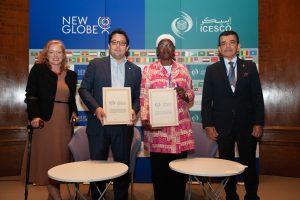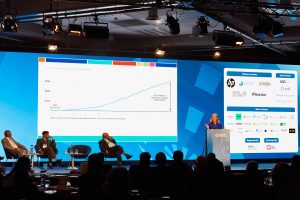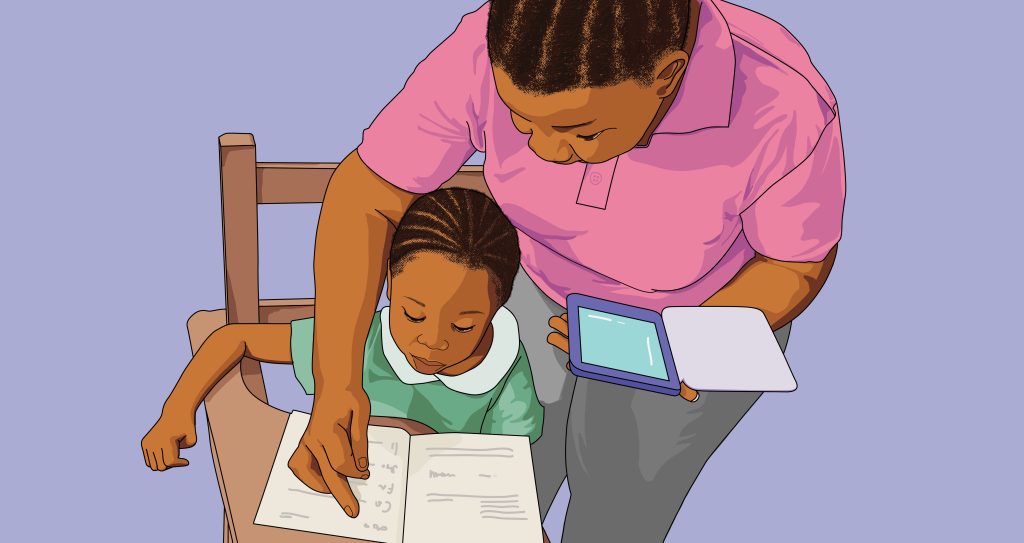Why unlocking learning through improved literacy and foundational learning is more important than ever
The ability to read is a key skill, literally. It unlocks all other opportunities for children and provides the foundation on which all future learning rests.
UN World Book and Copyright Day occurs annually on April 23 and strives to encourage a passion for reading.
But this year is particularly significant. The World Bank estimates that for the first time in recorded history, Sub-Saharan Africa will have the greatest population of children aged 0-14, projected to surpass 525 million by the start of 2024, growing to 720 million by 2050. At the same time, the numbers of young people will be falling or static on every other continent, as populations age. Growth in the world’s future human capital is therefore concentrated in Africa.
Yet, World Bank figures also estimate that learning poverty, an indicator that measures the share of children who cannot read a simple text with comprehension by 10 years of age, has reached a staggering 89% in the region. Left unchallenged, such a failure in learning will result in the largest cohort of young people in history growing up functionally illiterate.
But it also presents an unparalleled opportunity to maximize the potential of hundreds of millions of children, by unlocking their learning – and unlocking their potential.
NewGlobe understands this. It is why it became one of the earliest organizations to pledge support for UNICEF’s Commitment to Action on Foundational Learning. It is also why it works in support of visionary governments, mainly in Sub-Saharan Africa, determined to transform learning outcomes for all of their children.
One of these is Edo State in Nigeria, where the EdoBEST partnership has achieved transformational learning gains for hundreds of thousands of children since its launch in 2018.
Speaking on the success of the EdoBEST program at the World Bank 2023 Spring Meetings in Washington DC, Edo State’s Governor Godwin Obaseki said:
“Edo State has become a reference on how a sub-national in Africa has been able to undertake massive transformation and significantly improve learning outcomes in the public school system.”
So successful has EdoBEST been, that it has attracted funding from the World Bank’s Accelerator Program to aid its expansion.
EdoBEST’s success is supported by NewGlobe’s technical expertise and methods, which are centered around structured learning and real-time data gathering.
The very same methods, based on those affirmed in an independent study led by Professor Michael Kremer, the Nobel Prize-winning economist, underpin every government program supported by NewGlobe.
These now include partnerships in Nigeria’s Lagos, Kwara, and Bayelsa States, the LEAP program in Liberia, and the RwandaEQUIP program, as well as STAR Education in India’s Manipur State. In total, this equates to more than 1.2 million students learning in public schools.
At the heart of every partnership is reading. NewGlobe supplies books that both engage children and align with national curricula. This is essential to delivering literature that is enjoyable, first and foremost, whilst also capable of preparing students for important exams that they may be required to take later in life.
When issuing textbooks to schools, NewGlobe also places great emphasis on inclusivity and cultural sensitivity. For example, all material is locally owned, contains region-specific language,, and features images of both boys and girls in culturally appropriate clothing from a diverse variety of faiths. Because the ability to read is the birthright of every child, regardless of gender, religion, or background.
The results are startling. The Kremer study found that students in Year One of NewGlobe-supported primary schools in Kenya were three times more likely to be able to read than their peers taught using other methods.
End-line tests in Nigeria’s Lagos State found that after two years, despite the impact of the COVID pandemic, an average Primary 3 student could read at nearly the same fluency level as an average Primary 5 pupil from before the launch of the EKOEXCEL education transformation program. The same transformational gains have been recorded in every government-led initiative NewGlobe supports.
Such data gathering is possible because of real-time monitoring from every classroom in every school, tracking not only student performance but a whole range of other crucial indicators, including teacher attendance, student attendance, and lesson completion.
Access to such comprehensive learning data may be commonplace in the Global North, but in Africa it is revolutionary. UNESCO estimates that there is no learning data at all for two-thirds of African children.
During the World Bank Spring Meetings, Dr. Andrew Steer, President and CEO of the Bezos Earth Fund, commented that to effectively address the world’s most pressing challenges, investment should be directed towards education with the aim of producing “flexible, well-educated, numerate, literate people who can work in teams and solve problems.”
Such ambition must start with reading. This year marks a demographic watershed for Africa and the world. Record-breaking growth in the young population of Sub-Saharan Africa brings with it a golden opportunity for the entire planet to benefit from the substantial contribution to the global economy that can be made by a skilled and energized future labor force.
But crippling rates of learning poverty threaten to derail this prospect. The promotion of literacy and a love of books has never been more crucial than in 2023.



